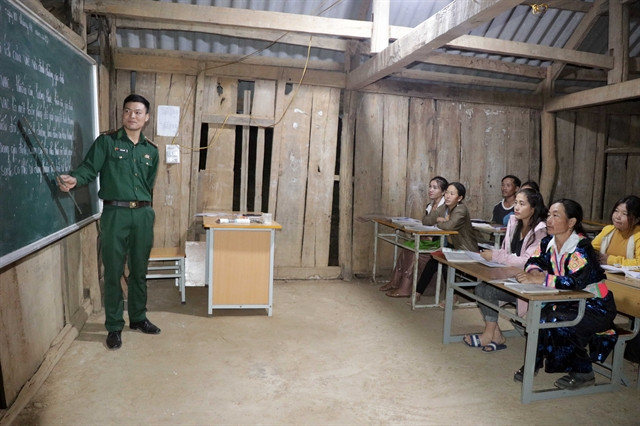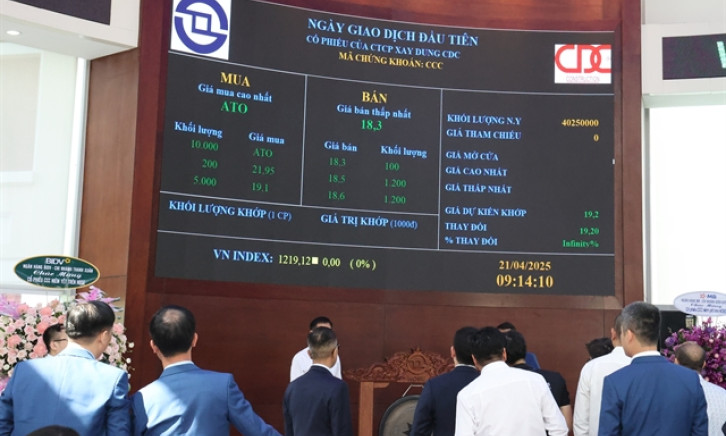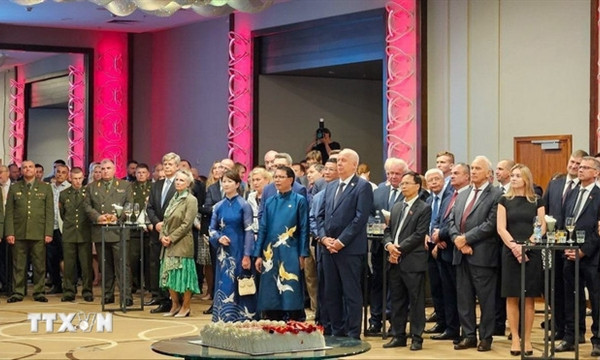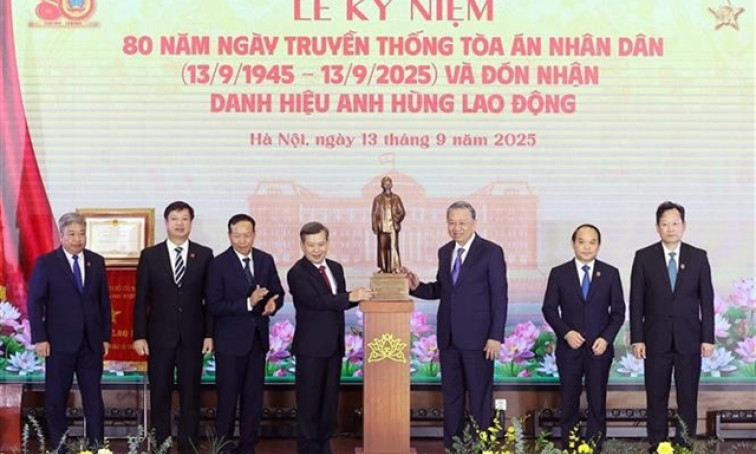Teachers, students in remote areas of Sơn La overcome hardships
In Pù Hao Village, Mường Lạn Commune, despite being busy in the fields during the day, every day at 19:30, "special" students together came to class.
The youngest of the students is about 10-11 years old, the oldest one is over 50 years old, and the teachers are soldiers.
Some families - father, mother, and children - attend the class together, Vietnam News Agency reported.
These special students are only used to holding knives and hoes all year round, but now they feel awkward when holding a pen. The teachers try to guide them to bend each letter.
Sốp Cộp border area, in Sơn La Province, has a large area and a scattered population.
Schools are usually located in mountainous and remote areas. Despite many difficulties and hardships, the teachers here still try their best to stay at the schools to teach ethnic minority students.
A 30-year-old ethnic minority woman, Giàng Thị Dung, said that because she did not go to school before, she was illiterate and could not speak Vietnamese (the majority Kinh language).
When she found out that there was a class organised by border guards in the village, she applied to join the class to change her life.
"I have always had the support and encouragement of my family to attend this evening class," she said.
The students were taught basic skills in listening, speaking, reading, writing and some basic math.
The teachers also talked about the State's policies, and how to prevent diseases in livestock.
The class helped many people to read, write, perform simple calculations, and understand about protecting sovereignty and border security.
Lieutenant Vi Văn Liêm at Mường Lạn Border Station said that the initial difficulty in organising the class was how to get people to come to class.
"Because the awareness of local people is still limited, life is difficult, so they don't want to learn,” Liêm said.
Due to the age difference of students, he had to give meticulous instructions, using simple and easy-to-understand words.
Going to class helped people understand the importance of literacy. "Once they can read and write, they will easily absorb the necessary information about economic and social development," Liêm said.
Teacher Lò Thị Hằng at Pu Hao Village’s school branch of Mường Lạn Primary School said the journey to bring letters to ethnic minority students was extremely arduous.
She said the Pu Hao school branch was more than 50km from her family, so for 15 years she had to stay at a small house next to the school for the whole week, only returning home on weekends.
Living in a 10sq.m room in a remote place, far from the centre of the commune, Hằng said the living conditions were insufficient and difficult.
“There are days when it rains heavily, landslides occurred so they couldn't return home, the teachers had to go to the village to ask for vegetables and rice from people,” she said. "My husband also works away from home. When the children are sick, I have to ask grandparents to take care of them. Many times I shed tears missing my children, but it is my job, I have tried to overcome all difficulties and hardships.”
After over 10 years working at Hoa Phong Lan Kindergarten, teacher Lương Thị Hồng said that her personal luggage in rainy days, was an extra pack of sticky rice, bread and a bottle of water.
Hồng said that working in the highlands is the most challenging when it was raining and the road was slippery.
Tòng Thị Diện, Vice Principal of Hoa Phong Lan Kindergarten, said that the school currently has 18 branches, the furthest place one more than 25km from the communal centre.
“As a preschool, all teachers are female. The school tries to make it easier for teachers with young children or who are pregnant to be given priority to teach close to home,” she said.






